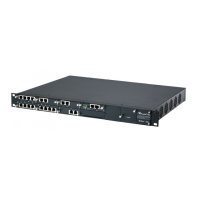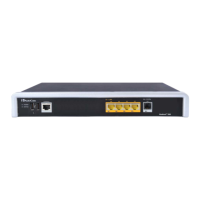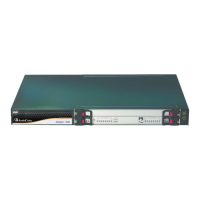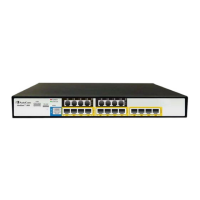Version 7.0 901 Mediant 3000
User's Manual 58. Configuration Parameters Reference
Parameter Description
Tel to IP No Answer
Timeout
[IPAlertTimeout]
Defines the time (in seconds) that the device waits for a 200 OK
response from the called party (IP side) after sending an INVITE
message, for Tel-to-IP calls. If the timer expires, the call is released.
The valid range is 0 to 3600. The default is 180.
Enable Remote Party ID
[EnableRPIheader]
Enables Remote-Party-Identity headers for calling and called numbers
for Tel-to-IP calls.
[0] Disable (default).
[1] Enable = Remote-Party-Identity headers are generated in SIP
INVITE messages for both called and calling numbers.
Enable History-Info
Header
hist-info-hdr
[EnableHistoryInfo]
Enables usage of the History-Info header.
[0] Disable (default)
[1] Enable
User Agent Client (UAC) Behavior:
Initial request: The History-Info header is equal to the Request-URI. If
a PSTN Redirect number is received, it is added as an additional
History-Info header with an appropriate reason.
Upon receiving the final failure response, the device copies the
History-Info as is, adds the reason of the failure response to the last
entry, and concatenates a new destination to it (if an additional
request is sent). The order of the reasons is as follows:
a. Q.850 Reason
b. SIP Reason
c. SIP Response code
Upon receiving the final response (success or failure), the device
searches for a Redirect reason in the History-Info (i.e., 3xx/4xx SIP
reason). If found, it is passed to ISDN according to the following table:
302 - Moved Temporarily Call Forward Universal (CFU)
408 - Request Timeout Call Forward No Answer (CFNA)
480 - Temporarily Unavailable
487 - Request Terminated
486 - Busy Here Call Forward Busy (CFB)
600 - Busy Everywhere
If history reason is a Q.850 reason, it is translated to the SIP reason
(according to the SIP-ISDN tables) and then to ISDN Redirect reason
according to the table above.
User Agent Server (UAS) Behavior:
The History-Info header is sent only in the final response.
Upon receiving a request with History-Info, the UAS checks the policy
in the request. If a 'session', 'header', or 'history' policy tag is found,
the (final) response is sent without History-Info; otherwise, it is copied
from the request.
Use Tgrp Information
[UseSIPTgrp]
Determines whether the SIP 'tgrp' parameter is used. This SIP
parameter specifies the Trunk Group to which the call belongs
(according to RFC 4904). For example, the SIP message below
indicates that the call belongs to Trunk Group ID 1:
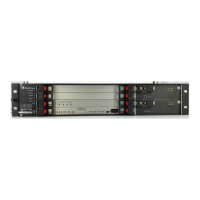
